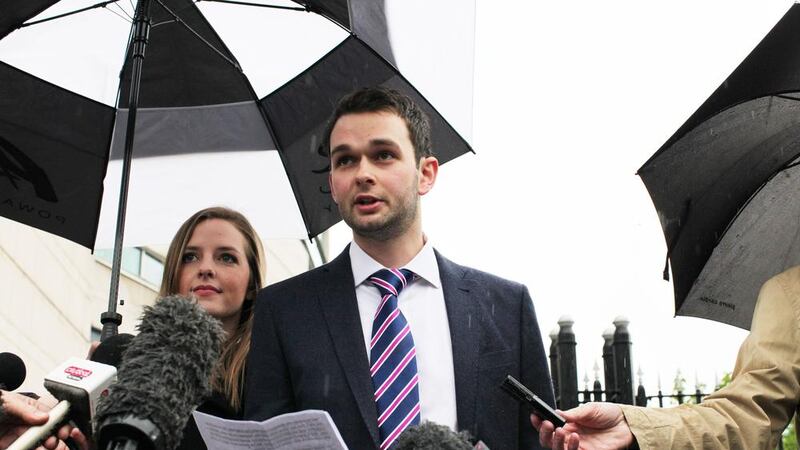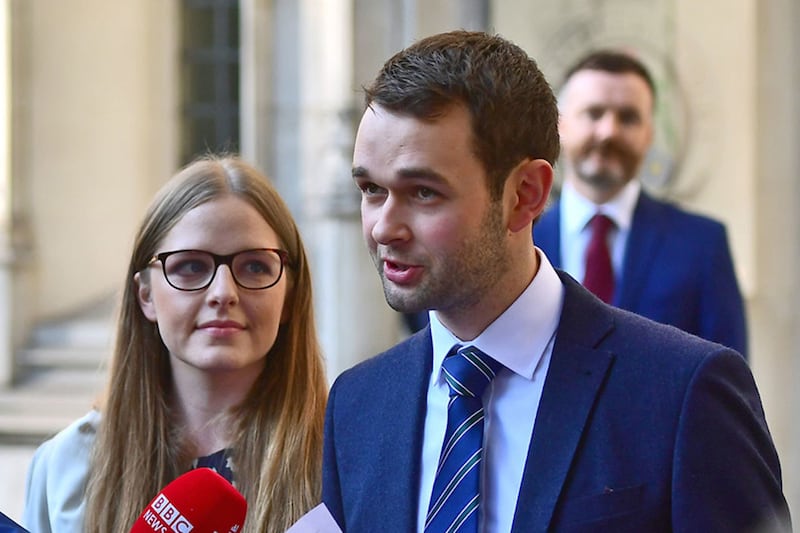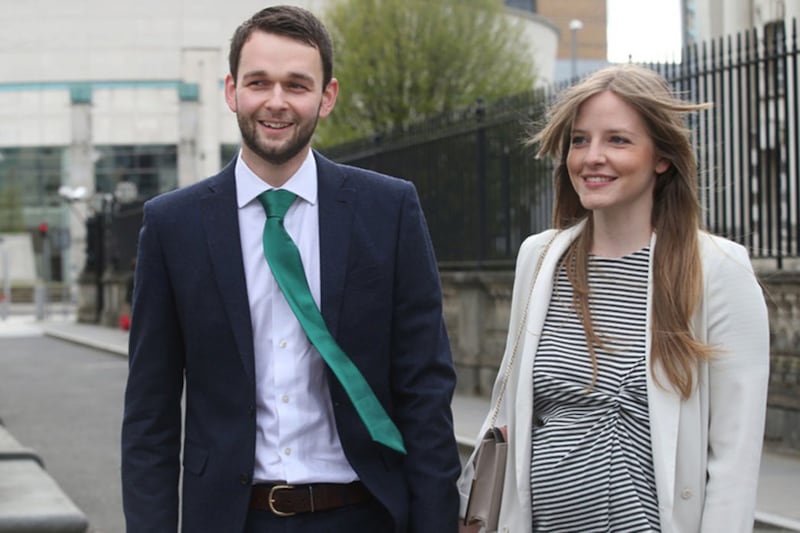"There can be no justification" for a Christian-owned bakery's refusal to make a cake carrying a slogan that promoted same-sex marriage, a judge ruled yesterday.
In a landmark judgment, District Judge Isobel Brownlie found that Ashers Baking Company acted unlawfully by declining the request from gay rights activist Gareth Lee last year.
Ordering the company to pay damages of £500, she said religious beliefs could not dictate the law.
"The defendants are entitled to continue to hold their genuine and deeply-held religious beliefs and to manifest them but, in accordance with the law, not to manifest them in the commercial sphere if it is contrary to the rights of others," she said.
The Northern Ireland Equality Commission brought the legal action on behalf of Mr Lee.
Ashers, which is owned by the McArthur family, was supported by the Christian Institute, which paid their legal costs.
Delivering her judgment to a packed courtroom at Belfast county court, District Judge Brownlie said there was a huge interest in the case, which has split public opinion.
"The defendants have unlawfully discriminated against the plaintiff on grounds of sexual discrimination," she said.
"This is direct discrimination for which there can be no justification."
Mr Lee, a member of the LGBT advocacy group Queer Space, wanted a cake featuring Sesame Street characters Bert and Ernie with the slogan 'Support Gay Marriage' for a private function in Bangor, Co Down, to mark International Anti Homophobia Day.
He paid in full when placing the order at Ashers' Belfast branch but said he was stunned when, two days later, the company phoned to say it could not be processed.
In evidence given in March, Mr Lee claimed to have been left feeling like a lesser person.
District Judge Brownlie accepted he had been treated "less favourably", contrary to the law.
She also said the bakers must have been aware that he was gay or associated with others who were gay and supported same-sex marriage because of the graphics he had supplied.
It was the word "gay" to which they objected.
"My finding is that the defendants cancelled this order as they oppose same-sex marriage for the reason that they regard it as sinful and contrary to their genuinely-held religious beliefs," she said.
She added: "The defendants are not a religious organisation. They are conducting a business for profit and, notwithstanding their genuine religious beliefs, there are no exceptions available under the 2006 regulations which apply to this case."
Throughout the lengthy hearing, Ashers general manager Daniel McArthur (25) sat beside his wife Amy in the court alongside other family members. The couple smiled as the judgment was read out.
Mr Lee sat impassively on the other side of the dock, flanked by male and female friends.
The judge told the court she believed that if a heterosexual person had ordered a cake with graphics promoting "heterosexual marriage" or simply "marriage", the order would have been fulfilled.
Among the Christian family's supporters in the public gallery were former Stormont health minister Edwin Poots and DUP Lagan Valley MLA Paul Givan, who is seeking to introduce a "conscience clause" into equality legislation.
In their evidence, the McArthurs, who employ up to 80 people across six branches that deliver throughout the UK and Ireland, said they were opposed to gay marriage on religious grounds.
Karen McArthur said she initially accepted the order to avoid a confrontation but knew in her heart that she could not fulfil the request.
After discussing the issue with her husband and son Daniel, she telephoned Mr Lee and informed him the cake would not be made.
The Equality Commission initially asked for the bakery on Belfast's Royal Avenue to acknowledge it had breached legislation and offer "modest" damages to the customer.
When Ashers refused, the publicly-funded watchdog proceeded with the legal challenge on grounds that Ashers had discriminated against the customer on grounds of sexual orientation.
District Judge Brownlie said: "They (Ashers) are in a business supplying services to all. The law requires them to do just that."
The cake row prompted the DUP to propose a controversial conscience clause in equality legislation - a move Sinn Féin has vowed to veto.
The judge said any change in the law was a matter for the devolved Assembly at Stormont.
Speaking outside the court, Mr Givan said he was disappointed by the ruling and accused the Equality Commission of using the "blunt instrument" of the courts to "drag" a Christian family through the legal process.
Daniel McArthur said he was "extremely disappointed" with the verdict.
"We won't be closing down, we certainly don't think we've done anything wrong and we will be taking legal advice to consider our options for appeal," he said.
Colin and Karen McArthur, who co-own the company, spoke publicly for the first time about the case last night and said they are upset the verdict did not find in their favour.
Karen McArthur said: "We are upset that it hasn’t went our way, but people have asked us that before, how will you feel, but it doesn’t change how we feel about God, He has a purpose in it no matter what the verdict was and we believed that from the start," she said.
Colin McArthur added: “Personally as a family it has been a difficult time with the pressure of the media and the attention that’s been upon us, but we’re thankful to The Christian Institute and to our fellow believers as a body of Christ, that they have sustained us and prayed for us, and we can take great delight that people are supporting us and we’re very, very grateful for that.”
Afterwards, Mr Lee, who has not spoken publicly about his experience, declined to address the media.
Michael Wardlow, from the Equality Commission, said of the ruling: "It was very robust, very clear. It sends out the signal confirming the law as we understood it.
"It says to people who took part in commercial enterprises that they must act within the anti-discrimination framework."








